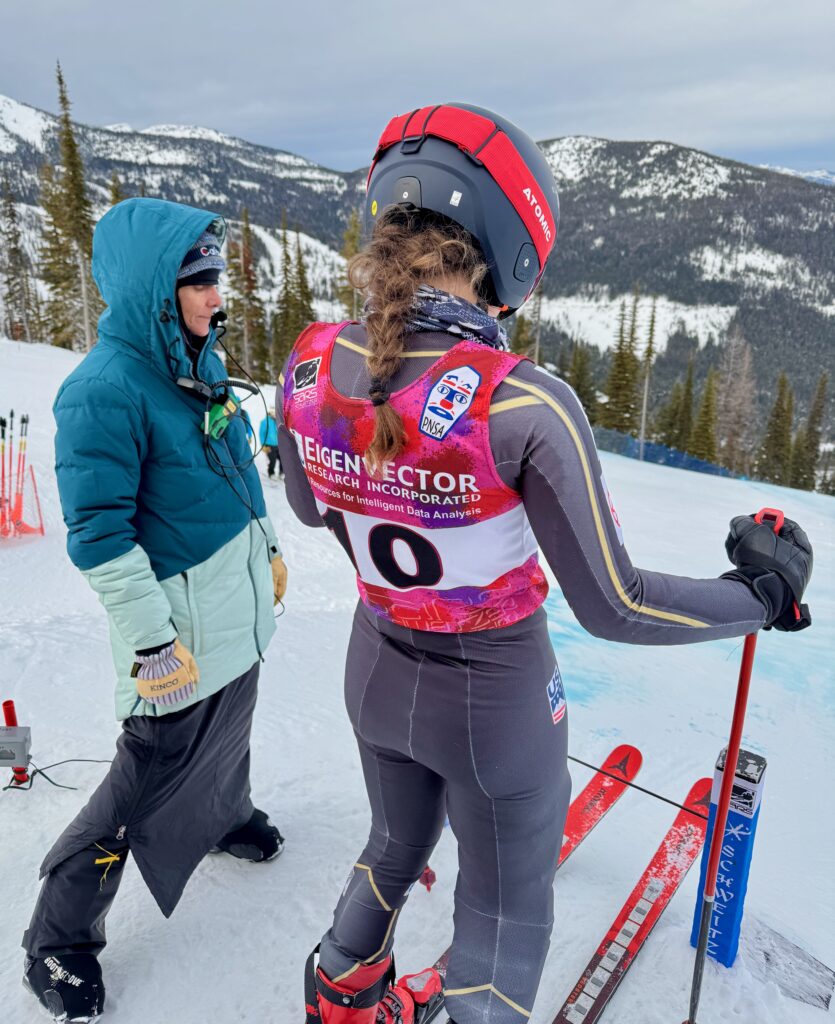Grit, Resilience and Ski Racing
Apr 23, 2025
It may be that the only way to improve your grit is to do things that are hard. — Clare E. Wise, M.D.
The end of the ski season is upon us and with it the end of the ski racing season. It has been a great year and I’ve been fortunate to officiate at alpine ski racing events at (almost) all levels this year, with athletes from 6 to 86 (yes, really).
We’re big fans of ski racing and I’m pleased we’re able to sponsor two ski teams under the Eigenvector banner, the Schweitzer Alpine Racing School (SARS) and the Mission Ridge Ski Team (MRST). Given that ski racing has nothing to do with chemometrics, machine learning or, say, spectroscopy, you may be wondering why we choose to sponsor ski racing. The answer? Because it’s hard. And learning to do things that are extremely difficult under highly variable and largely non-ideal circumstances improves grit and resilience. This is true for young people and adults.
Grit made its way into the popular lexicon upon the publication of Angela Duckworth’s eponymous book in 2016. Grit is defined as “passion and perseverance in pursuit of long term goals,” or alternately, as “courage and resolve, strength of character.” (For a quick introduction to grit see Duckworth’s 2014 TED talk.) Grit is closely related to resilience, “the capacity to withstand or to recover quickly from difficulties and setbacks.” Though hard to measured accurately, (grit is assessed using self reported questionaires), grit is the single biggest factor in predicting the success of people in everything from math scores to recovery from surgery.
So how do you build grit? Duckworth’s TED talk from 11 years ago ends with a “we don’t know.” Since then additional research has been done. Developing long term habits, such as doing the New York Times crossword puzzle every day, (or in my case, studying French on Duolingo), appears to contribute. But the most effective way, and maybe even the only way to build grit and resilience is to repeatedly do things that are hard. Things that you often fail at but learn to recover from and progress.
Ski racing provides many opportunities to fail and recover. Is totally objective: time is the only thing that counts and it is measured to the hundredth of a second. But course sets, surface and weather conditions vary widely and races are seldom run under ideal conditions. It is inherently unfair because no two athletes ski exactly the same course: the surface degrades and the weather can change in an instant. Add to that frequent schedule changes and the resulting equipment and mental preparation gymnastics. There are many, many variables that are out of the control of the athletes.

Beyond grit and resilience, ski racing (and other sports and activities too, of course) improve the mental health and social development of young people. Research discussed in Greg Lukianoff and Jonathan Haidt’s “The Coddling of the American Mind: How Good Intentions and Bad Ideas are Setting a Generation up for Failure” and Haidt’s recent “The Anxious Generation: How the Great Rewiring of Childhood is Causing an Epidemic of Mental Illness” indicates the rise of “safetyism” contributes to arrested development and “failure to launch.” Participation in skiing in general is the opposite of safetyism, skiers can and do get injured. Ski racers even more so. Having to pick yourself up from “face-plants” is a pretty regular thing. And while we wouldn’t wish serious injury on anyone and do our utmost to prevent it, ski racers and other athletes learn a lot about what they are capable of when they are recovering. Haidt’s (and other’s) work also indicates that time spent outdoors with friends away from cell phones is clearly good for the mental health of young people.
For a nice summary of recent research on this topic, please see “Too Grit to Quit: Building Grit & Resilience in Orthopedic Patients & Providers,” a Grand Rounds talk by Clare Wise. Though focused on the world of orthopedic surgery, the research covered includes many generally applicable results, along with some interesting information about what the US Ski Team is doing to improve the grit of their athletes (a pretty gritty bunch to begin with).
Our daughters Clare and Mattie, who have both been ski racers and coaches, have many fellow ski racer friends and I am constantly amazed at what a fun, outgoing, and very successful group they are. Their ski racing experience surely contributed to this. Eigenvector is proud to support that experience for future and current generations.
Barry M. Wise
Technical Delegate
USSS #5940341

 SEARCH
SEARCH